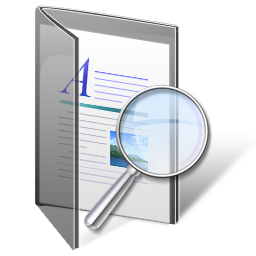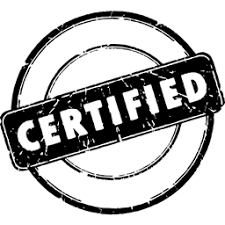 A good literature review serves as the foundation upon which the edifice of research and knowledge is built. However, in the pursuit of academic excellence, there is a fine line between drawing inspiration from existing works and inadvertently stumbling into the perilous territory of plagiarism. At our institution, we understand that scholars, students, and researchers often find themselves inadvertently trapped in the labyrinth of unintentional plagiarism while constructing their literature reviews. This predicament can pose a significant threat not only to their academic integrity but also to the credibility of their research endeavors. Hence, we have undertaken the noble mission of offering the best guidance on how to correct plagiarized sections of a literature review. Our team of seasoned experts, well-versed in the nuances of academic writing and plagiarism detection, stands ready to assist you in rectifying any inadvertent instances of plagiarism within your literature review. With a meticulous eye for detail and a commitment to upholding academic integrity, we diligently review and correct your work to ensure it meets the highest scholarly standards. In this era of heightened academic scrutiny and stringent plagiarism checks, our services are your beacon of hope, guiding you toward a literature review that is not only impeccably crafted but also free from the shadows of plagiarism. Your academic journey deserves nothing less than the best, and our expert chapter two plagiarism editors are here to help you achieve it.
A good literature review serves as the foundation upon which the edifice of research and knowledge is built. However, in the pursuit of academic excellence, there is a fine line between drawing inspiration from existing works and inadvertently stumbling into the perilous territory of plagiarism. At our institution, we understand that scholars, students, and researchers often find themselves inadvertently trapped in the labyrinth of unintentional plagiarism while constructing their literature reviews. This predicament can pose a significant threat not only to their academic integrity but also to the credibility of their research endeavors. Hence, we have undertaken the noble mission of offering the best guidance on how to correct plagiarized sections of a literature review. Our team of seasoned experts, well-versed in the nuances of academic writing and plagiarism detection, stands ready to assist you in rectifying any inadvertent instances of plagiarism within your literature review. With a meticulous eye for detail and a commitment to upholding academic integrity, we diligently review and correct your work to ensure it meets the highest scholarly standards. In this era of heightened academic scrutiny and stringent plagiarism checks, our services are your beacon of hope, guiding you toward a literature review that is not only impeccably crafted but also free from the shadows of plagiarism. Your academic journey deserves nothing less than the best, and our expert chapter two plagiarism editors are here to help you achieve it.
The essence of thorough proofreading to ensure a 0% plagiarized Chapter 2
Thorough proofreading is the cornerstone of producing a plagiarism-free review. This critical step in the research process involves meticulously examining the entire document to identify and rectify any errors, inconsistencies, or instances of unintentional plagiarism. The essence of this process lies in several key aspects:
- Originality Assurance: Proofreading ensures that the content of the literature review is entirely original and does not unintentionally replicate existing work. It helps authors to identify instances where their writing may closely resemble the language or ideas of other researchers, even if unintentional.
- Citation Accuracy: A comprehensive proofreading process includes verifying the accuracy and completeness of citations and references. This helps authors avoid both inadvertent plagiarisms, where sources are not properly credited, and over-citation, where sources are cited excessively.
- Language Precision: Through careful proofreading, authors can refine the language and structure of their literature review. This ensures that their ideas are expressed clearly and concisely while minimizing the risk of accidental paraphrasing from their sources.
- Consistency: Proofreading also involves checking for consistency in formatting, citation styles, and writing conventions throughout the document. Maintaining uniformity in these aspects enhances the overall quality of the literature review and prevents potential accusations of plagiarism.
- Quality Enhancement: Beyond plagiarism prevention, thorough proofreading enhances the overall quality of the literature review. It allows authors to identify and correct grammatical, spelling, and punctuation errors, leading to a polished and professional final product.
Strategies our experts follow to maintain the existing literature and avoid plagiarism in your review
To maintain the integrity of existing literature and avoid plagiarism in your review, our experts employ a rigorous set of strategies. We offer expert literature review plagiarism correction help, as an additional merit to our strategies. We conduct comprehensive literature searches to identify and review relevant sources, as we have a deep understanding of the existing work in the field. When summarizing or paraphrasing ideas from these sources, our experts make sure to express them in their own words while maintaining the original meaning. Direct quotations are sparingly used and are always properly cited following the appropriate citation style guidelines. To further safeguard against accidental plagiarism, we use plagiarism detection software to cross-check their work and ensure that it is entirely original. Additionally, we keep meticulous records of all sources consulted during the review process, enabling them to provide accurate and complete citations. This combination of thorough research, proper citation practices, and plagiarism checks ensures that our reviews not only contribute to the scholarly discourse but also adhere to the highest standards of academic integrity and ethics.
How do cultural and language differences lead to unintentional plagiarism?
 Cultural and language differences can significantly lead to unintentional plagiarism in chapter two. When researchers from diverse linguistic and cultural backgrounds engage in academic writing, they may inadvertently misinterpret or misrepresent source materials due to variations in language proficiency and cultural context. Language differences pose a risk because non-native English speakers may struggle with paraphrasing or summarizing effectively, leading to unintentional duplication of phrasing or sentence structures from the original source. This can be compounded by variations in terminology and academic conventions, making it challenging to accurately convey the source's ideas without unintentionally copying content. Cultural differences also play a crucial role. Different cultures have distinct norms regarding citation practices, intellectual property, and the use of sources. Researchers may unintentionally overlook these cultural nuances when synthesizing existing literature, leading to plagiarism accusations. To mitigate the impact of these differences, institutions and publishers should provide clear guidelines on proper citation practices and offer support for non-native English speakers. Researchers themselves must be proactive in seeking feedback and training in academic writing to ensure their literature reviews are both culturally and linguistically appropriate while avoiding unintentional plagiarism. Needless to say, should you be caught between cultural and language differences, we have qualified editors who can help. We will ensure that your literature review is plagiarism-free, as we have native English-speaking experts.
Cultural and language differences can significantly lead to unintentional plagiarism in chapter two. When researchers from diverse linguistic and cultural backgrounds engage in academic writing, they may inadvertently misinterpret or misrepresent source materials due to variations in language proficiency and cultural context. Language differences pose a risk because non-native English speakers may struggle with paraphrasing or summarizing effectively, leading to unintentional duplication of phrasing or sentence structures from the original source. This can be compounded by variations in terminology and academic conventions, making it challenging to accurately convey the source's ideas without unintentionally copying content. Cultural differences also play a crucial role. Different cultures have distinct norms regarding citation practices, intellectual property, and the use of sources. Researchers may unintentionally overlook these cultural nuances when synthesizing existing literature, leading to plagiarism accusations. To mitigate the impact of these differences, institutions and publishers should provide clear guidelines on proper citation practices and offer support for non-native English speakers. Researchers themselves must be proactive in seeking feedback and training in academic writing to ensure their literature reviews are both culturally and linguistically appropriate while avoiding unintentional plagiarism. Needless to say, should you be caught between cultural and language differences, we have qualified editors who can help. We will ensure that your literature review is plagiarism-free, as we have native English-speaking experts.
This critical process serves as a safeguard for the integrity of scholarly work, ensuring that ideas and information are properly attributed to their original sources. In our quest for knowledge and advancement, it is imperative that we uphold the highest standards of academic integrity. We play a pivotal role in this endeavor. We offer valuable assistance to researchers and scholars, guiding them through the intricate process of identifying and rectifying instances of unintentional plagiarism. We not only help individuals avoid the severe consequences of academic misconduct but also contribute to the overall quality of research by maintaining the credibility of scholarly work. Furthermore, as academic publishing becomes increasingly competitive, the need for accurate and original literature reviews becomes more pronounced. By seeking our help with plagiarism correction, researchers not only protect their academic reputation but also enhance their chances of making meaningful contributions to their respective fields. We are an indispensable tool for preserving the authenticity and integrity of academic research. We empower scholars to engage in honest, rigorous, and impactful research, ultimately fostering a culture of trust and knowledge advancement in the academic community.
Help to Correct Plagiarized Parts in a Lit Review | Expert Editors
 In academics, the integrity of one's work is paramount. Maintaining a high level of originality and ensuring that all sources are appropriately credited is not only an ethical obligation but a fundamental requirement for academic success. Unfortunately, even the most conscientious researchers may inadvertently find themselves facing issues of plagiarism within their literature reviews. This is where our dedicated team of skilled experts paid to correct plagiarism in lit reviews comes to your aid. We understand the critical importance of a well-written review, and we recognize that the presence of plagiarized content can tarnish your scholarly reputation and credibility. That's why we have a team of seasoned experts who specialize in identifying and rectifying any instances of plagiarism within your review. Our editors are not just proficient in the art of plagiarism detection, they are also masters of the written word. With years of experience in various academic disciplines, they possess the knowledge and expertise required to seamlessly integrate and cite external sources while preserving the cohesiveness and flow of your narrative. When you entrust your review to our team, you are not just investing in plagiarism correction; you are investing in the enhancement of your research, ensuring that your work stands as a testament to your dedication to academic excellence. With us, you can rest assured that your work will shine brightly, free from the shadows of plagiarism.
In academics, the integrity of one's work is paramount. Maintaining a high level of originality and ensuring that all sources are appropriately credited is not only an ethical obligation but a fundamental requirement for academic success. Unfortunately, even the most conscientious researchers may inadvertently find themselves facing issues of plagiarism within their literature reviews. This is where our dedicated team of skilled experts paid to correct plagiarism in lit reviews comes to your aid. We understand the critical importance of a well-written review, and we recognize that the presence of plagiarized content can tarnish your scholarly reputation and credibility. That's why we have a team of seasoned experts who specialize in identifying and rectifying any instances of plagiarism within your review. Our editors are not just proficient in the art of plagiarism detection, they are also masters of the written word. With years of experience in various academic disciplines, they possess the knowledge and expertise required to seamlessly integrate and cite external sources while preserving the cohesiveness and flow of your narrative. When you entrust your review to our team, you are not just investing in plagiarism correction; you are investing in the enhancement of your research, ensuring that your work stands as a testament to your dedication to academic excellence. With us, you can rest assured that your work will shine brightly, free from the shadows of plagiarism.
How we identify plagiarism in your lit review
Identifying plagiarism in a literature review is crucial to maintaining academic integrity and originality. Here's a concise overview of common methods we use to detect plagiarism in a literature review:
- We utilize plagiarism detection software such as Turnitin, Copyscape, or Grammarly to scan your literature review for similarities with existing sources
- We ensure proper citation and referencing of all sources used in your literature review. Follow the required citation style (e.g., APA, MLA, Chicago) consistently throughout the review.
- When incorporating ideas from existing sources, we paraphrase effectively by rephrasing sentences and ideas in our own words
- We use quotation marks for direct quotations from sources and provide the necessary citation. Even a short phrase or sentence from another work should be properly attributed.
- Our experts verify that all the sources you cite in your literature review are accurately referenced and that the corresponding citations match the content within your text.
- We make sure that your literature review includes your own analysis, synthesis of information, and critical evaluation rather than merely summarizing existing sources.
- We carefully review your literature review multiple times to catch any inadvertent instances of plagiarism before submitting it.
The best way to correct plagiarism in lit reviews
Correcting a plagiarized literature review is essential to maintain academic integrity. If you seek our help to correct plagiarized parts in a lit review, you will understand this concise guide on the best approach to do so:
- Acknowledge the Plagiarism: Start by admitting the wrongdoing and taking full responsibility for the plagiarized content. Avoid justifying or making excuses.
- Identify the Sources: Carefully identify the original sources that were plagiarized in your literature review. Be thorough in this process to ensure all instances are addressed.
- Remove or Rewrite Plagiarized Sections: Remove the plagiarized content from your literature review. Replace it with your own original analysis, thoughts, and paraphrased information, citing the original sources properly.
- Cite Sources Correctly: Ensure that you use proper citation and referencing styles (e.g., APA, MLA, Chicago) for all the sources you reference in your revised literature review. This includes in-text citations and a comprehensive bibliography or references section.
- Learn from the Mistake: Reflect on why the plagiarism occurred and take steps to prevent it in the future. Familiarize yourself with your institution's policies on academic integrity.
- Seek Guidance: If you're unsure about proper citation or how to rewrite the plagiarized sections, consult with us for guidance and support.
- Run Plagiarism Checks: Use plagiarism detection tools like Turnitin or Grammarly to ensure your revised work is entirely free from plagiarism.
- Proofread and Edit: After revising, proofread your literature review to correct any errors or inconsistencies and ensure it flows logically.
How to address the concept of self-plagiarism in your literature review
Addressing the concept of self-plagiarism in literature reviews is essential to maintain academic integrity and ensure the originality of research contributions. When composing literature reviews, it is imperative to clearly distinguish between one's prior work and the current review to avoid self-plagiarism. You should explicitly reference and cite their previous publications when including content or ideas from their own work, treating it as they would any external source. Moreover, you should strive to present a fresh perspective or synthesis of existing literature rather than recycling verbatim text from their earlier writings. By adhering to these practices, you can uphold the principles of honesty, transparency, and scholarly rigor in their literature reviews, ultimately contributing to the advancement of knowledge while avoiding ethical violations and potential repercussions.
 Seeking our expert help is not merely a remedy for academic misconduct; it is a commitment to upholding the highest standards of integrity and scholarship. Our guidance goes far beyond mere correction as it is a pathway toward educational growth and ethical fortitude. Plagiarism tarnishes your reputation and diminishes the authenticity of your work. With our experts’ help, you take a proactive stance against plagiarism, ensuring your research reflects originality, credibility, and dedication to the pursuit of knowledge. Moreover, we possess a wealth of experience and a discerning eye for identifying instances of plagiarism, which may elude even the most vigilant scholars. Our meticulous scrutiny and comprehensive corrections not only rectify past transgressions but also instill a sense of responsibility and diligence for future academic endeavors. Additionally, we offer invaluable guidance on proper citation and referencing, empowering researchers to navigate the intricate labyrinth of academic conventions with confidence. This ensures that one's literature review not only stands as a testament to their scholarly prowess but also contributes meaningfully to the academic discourse. Seeking our expert plagiarism editing assistance is an investment in academic integrity, personal growth, and the betterment of the academic community as a whole. It is a commitment to the principles of honesty, transparency, and rigorous scholarship that lie at the heart of all academic pursuits.
Seeking our expert help is not merely a remedy for academic misconduct; it is a commitment to upholding the highest standards of integrity and scholarship. Our guidance goes far beyond mere correction as it is a pathway toward educational growth and ethical fortitude. Plagiarism tarnishes your reputation and diminishes the authenticity of your work. With our experts’ help, you take a proactive stance against plagiarism, ensuring your research reflects originality, credibility, and dedication to the pursuit of knowledge. Moreover, we possess a wealth of experience and a discerning eye for identifying instances of plagiarism, which may elude even the most vigilant scholars. Our meticulous scrutiny and comprehensive corrections not only rectify past transgressions but also instill a sense of responsibility and diligence for future academic endeavors. Additionally, we offer invaluable guidance on proper citation and referencing, empowering researchers to navigate the intricate labyrinth of academic conventions with confidence. This ensures that one's literature review not only stands as a testament to their scholarly prowess but also contributes meaningfully to the academic discourse. Seeking our expert plagiarism editing assistance is an investment in academic integrity, personal growth, and the betterment of the academic community as a whole. It is a commitment to the principles of honesty, transparency, and rigorous scholarship that lie at the heart of all academic pursuits.










